News
Lanka’s Vedda tribe linked to ethnic Indians: Study
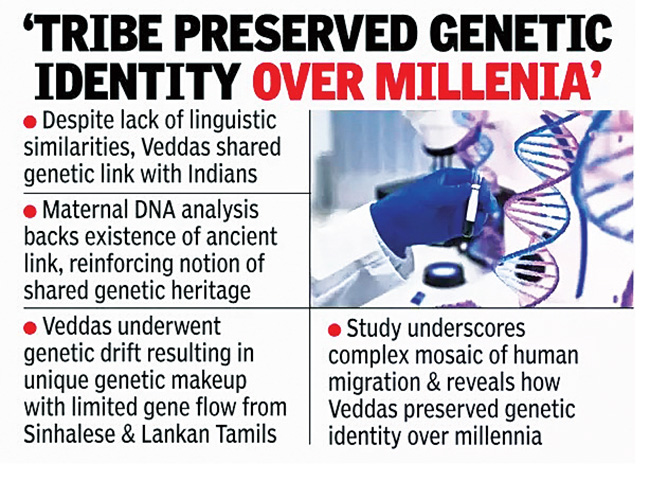
A study by Hyderabad-based Centre for Cellular and Molecular Biology and Colombo University has found that the Vedda tribe was genetically linked to ethnic Indians, said a report published by the Times of India.
It said: In a landmark study published this week in ‘Mitochondrion’ journal, 10 researchers from five institutions spoke about findings on the genetic history of the Vedda population, an indigenous group of Lanka.
It has found that the Vedda share a strong genetic similarity with the Austroasiatic Munda-speaking Santhal and Juang tribes in Odisha and the Dravidian-speaking Irula, Paniya and Pallar found in Karnataka, Kerala and Tamil Nadu.
Their study has revealed that the Vedda have a greater genetic similarity with these five tribes than with either Sri Lanka’s Sinhalese or Tamil populations with whom they have shared the island for centuries.
“This was a surprise — it shows Sri Lanka as an amazing place where three populations, living side by side, interacted very differently with one another,” Gyaneshwer Chaubey, a population geneticist at the Banaras Hindu University, who supervised the study, said.
“The Sinhala and Tamil are massively mixed — you could call them genetically nearly indistinguishable, but the Vedda have remained largely isolated, they’ve maintained their identity by very low mixing,” Chaubey said.
Archaeological excavations show that modern humans have been occupying Sri Lanka for the past 30,000 years, perhaps longer. The Vedda, originally hunter-gatherers, are the island’s only indigenous population and are believed to be the direct descendants of the island’s earliest inhabitants.
“The Vedda have long intrigued anthropologists, historians and scientists because of their distinct language and culture,” said Kumarasamy Thangaraj, a scientist and study collaborator at the Centre for Cellular and Molecular Biology, Hyderabad.
Kumarasamy added: “Our study unravels their genetic origins and affinities with Indian populations.”
The Vedda’s original language is linguistically isolated, unrelated to any known language. Chaubey said it was one of three such linguistically isolated languages on the subcontinent, alongside Nihali, spoken in central India, and Kusunda in Nepal.
For their study, the scientists extracted genetic material from blood samples collected from 37 healthy, maternally unrelated Vedda individuals and compared their genomic segments with those from other populations.
Their maternal ancestry analysis suggests that the Vedda are the descendants of people who arrived from the Indian subcontinent some 55,000 years ago and who were likely an offshoot of a branch of modern humans who moved out of Africa into India and Asia.
The genetic proximity of the Vedda with Indian tribal populations that were among the earliest populations in India shows their deep common genetic roots, Chaubey said.
“The study highlights a distinct demographic history of the Vedda,” said Anjana Welikala, a scientist at Colombo University, and the study’s first author. The findings show that the Vedda largely remained genetically isolated despite the geographic proximity with the Sinhalese and Tamil populations.
Ruwandi Ranasingh, the study’s lead author at Colombo University, said the study had shown that the Vedda had preserved their distinct genetic makeup with limited gene flow from neighbouring Sinhalese and Sri Lankan Tamil populations.
A study by Ranasingh and her Indian collaborators had last year shown that Sri Lanka’s Sinhalese and Tamil populations shared exceptionally high levels of genetic similarities, implying centuries of intermingling despite the differences in their arrival history, ethnicity, and language.
The Sinhalese had arrived in Sri Lanka between 800BC and 600BC while the island’s Tamil population are the descendants of arrivals from Tamil Nadu between 600BC and 300BC.
British husband-wife anthropologists Charles Seligmann and Brenda Seligmann had, in a treatise on the Vedda in 1911, proposed that they were related to the Dravidian jungle tribes in southern India but should be considered more primitive.
News
Govt. to initiate talks on setting up Truth Commission: FM Herath
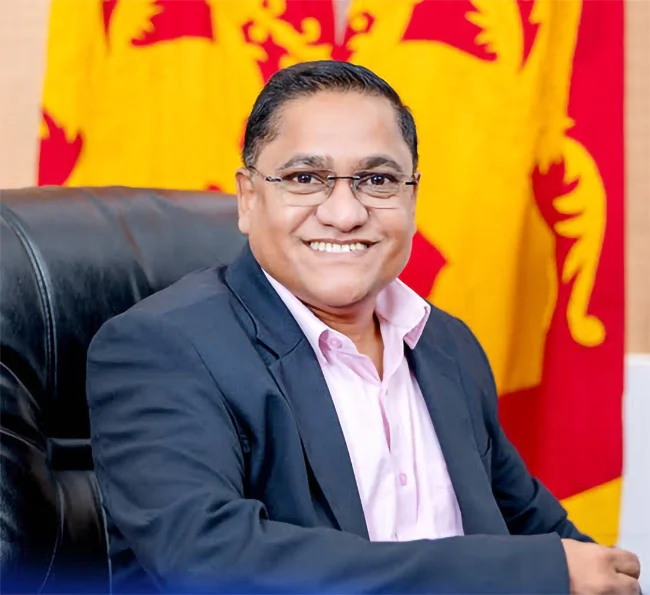
UNHRC Session in Geneva:
The JVP/NPP government has expressed its willingness, at the UNHRC in Geneva to initiate talks on setting up a Truth and Reconciliation Commission to investigate acts of violence caused by racism and religious extremism,
Addressing the High-Level Segment of the 58th Regular Session of the United Nations Human Rights Council (UNHRC) in Geneva, Foreign Minister Vijitha Herath said: “The contours of a truth and reconciliation framework, will be further discussed with the broadest possible cross section of stakeholders, before operationalisation to ensure a process that has the trust of all Sri Lankans. Our aim is to make the domestic mechanisms credible and sound within the constitutional framework. This will include strengthening the work towards a truth and reconciliation commission empowered to investigate acts of violence caused by racism and religious extremism that give rise to tensions within Sri Lankan society.”
“The Government has pledged to take tangible steps in the interest of further advancing national unity and reconciliation. The President has proposed to declare a Sri Lanka Day, in line with our vision for a reconciled Sri Lanka and commitment to bridging gaps between communities. We will ensure that the domestic mechanisms and processes, established to address challenges emanating from the conflict, will continue their work in an independent and credible manner, within the Constitutional framework. Domestic institutions, such as the Office on Missing Persons (OMP), Office for Reparations, and Office for National Unity and Reconciliation (ONUR), will be strengthened,” he said.
Minister Herath reaffirmed Sri Lanka’s commitment to human rights, reconciliation, and sustainable development, highlighting the country’s progress and government’s strategies for continued engagement with the international community.
The government is firmly and sincerely committed to working towards a unified Sri Lanka that respects and celebrates the diversity of its people with no division or discrimination based on race, religion, class and caste. We will not leave room for a resurgence of divisive racism or religious extremism in our country. The fundamental and long standing principles of democracy and freedom enshrined in our Constitution will be fully respected and safeguarded while protecting the human rights of all citizens. Every citizen should feel free to practice their religion, speak their language, and live according to their cultural values without fear or discrimination. No one should feel that their beliefs, culture, or political affiliations will make them targets of undue pressure or prejudice. Administrative, political and electoral processes will be activated towards this end.
A number of confidence building measures have also been taken in the last few months towards reconciliation. In November 2024, a number of roads in the Northern Province, including the Palali-Achchuveli main road, were opened for public use, after several decades. The President, during his visit to the North in January this year, made an open invitation to Tamil-speaking youth to be part of Sri Lanka’s police service. The 2025 Budget includes significant allocations to upgrade the libraries throughout the country, including the historical Jaffna library which is a symbol of education and enlightenment for the Tamil community, he said.
News
Indonesia to support Clean Sri Lanka initiative
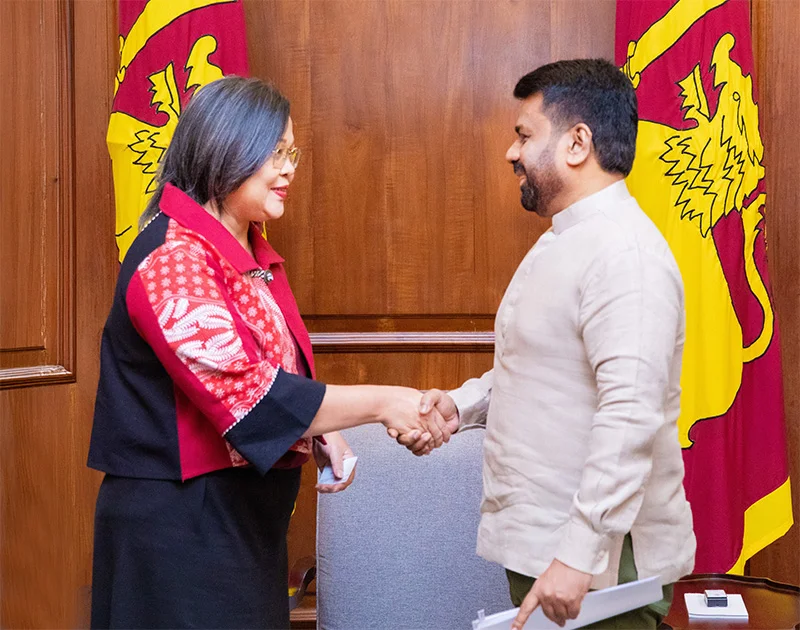
Indonesia has pledged support for Clean Sri Lanka programme, the President’s Media Division said.
The assistance in this regard was assured by Indonesian Ambassador Dewi Gustina Tobing when she called on President Anura Kumara Dissanayake at the Presidential Secretariat on Tuesday, the PMD said.
During the discussion, Ambassador Tobing extended Indonesia’s well wishes to the new government and reaffirmed Indonesia’s commitment to strengthening the 70-year-long friendship between the two nations. She said that Indonesia’s current administration would support the Clean Sri Lanka programme, noting that measures have been taken to implement a similar initiative in Indonesia.
The discussions also focused on establishing vibrant trade agreements and free trade arrangements between the two nations. Additionally, both parties explored opportunities to expand markets in a mutually beneficial manner while further strengthening economic, social and cultural ties. Senior Additional Secretary to the President, Roshan Gamage and Indonesian Deputy Ambassador, Fiki Oktanio, were also present at the meeting, the release said.
News
First batch of vehicles imported for private use, since 2020, arrives
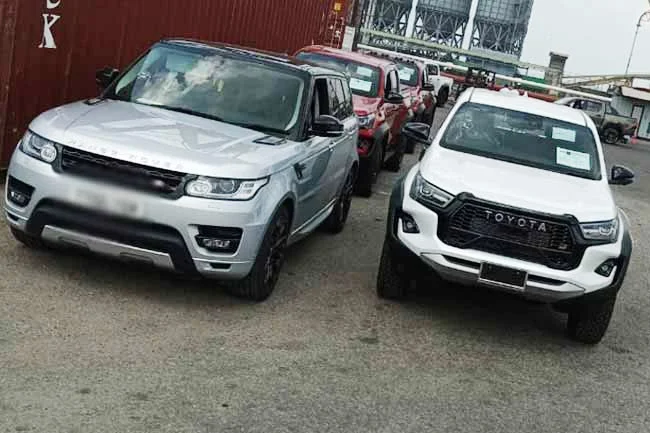
The first batch of vehicles imported for private use arrived at the Colombo Port on Tuesday (25) afternoon, following the government’s decision to end a five-year suspension on vehicle imports to conserve meagre foreign reserves.
Speaking to journalists in Colombo on Wednesday morning, Vehicle Importers’ Association of Sri Lanka (VIASL) President Prasad Manage said the first shipment arrived from Thailand, and another shipment from Japan is scheduled to arrive at the Hambantota International Port on Thursday (27).
The Sri Lankan government officially lifted the temporary ban on vehicle imports, which had been in place since early 2020, on January 31, 2025.
One of the primary reasons for lifting the suspension is to boost state revenue and meet the tax target of 15 percent of gross domestic product, a requirement under Sri Lanka’s bailout agreement with the International Monetary Fund (IMF).
During his recent Budget speech in Parliament, Sri Lankan President Anura Kumara Dissanayake said the liberalization of motor vehicle imports is expected to generate a significant portion of the government’s revenue targets.
However, he emphasized that vehicle imports will be closely monitored to prevent any adverse effects on the country’s external sector stability.
-

 Business3 days ago
Business3 days agoSri Lanka’s 1st Culinary Studio opened by The Hungryislander
-

 Sports4 days ago
Sports4 days agoHow Sri Lanka fumbled their Champions Trophy spot
-
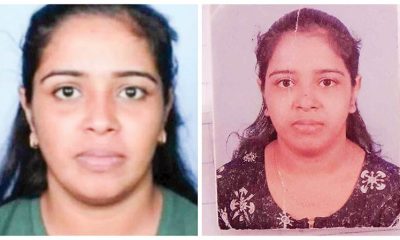
 News6 days ago
News6 days agoKiller made three overseas calls while fleeing
-

 News5 days ago
News5 days agoSC notices Power Minister and several others over FR petition alleging govt. set to incur loss exceeding Rs 3bn due to irregular tender
-

 Features4 days ago
Features4 days agoThe Murder of a Journalist
-
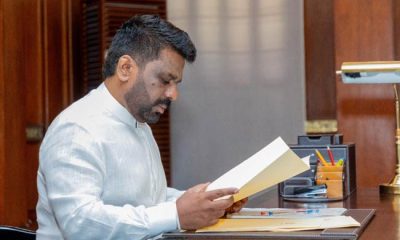
 Features4 days ago
Features4 days agoExcellent Budget by AKD, NPP Inexperience is the Government’s Enemy
-
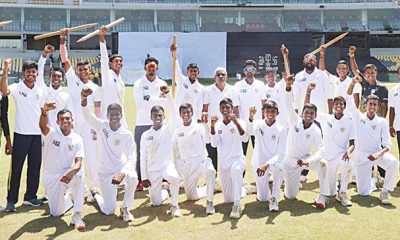
 Sports4 days ago
Sports4 days agoMahinda earn long awaited Tier ‘A’ promotion
-

 News5 days ago
News5 days agoMobile number portability to be introduced in June











